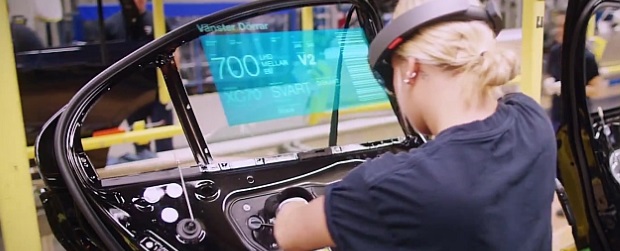Microsoft isn’t letting Google have all the fun. Less than a week following the announcement of the return of Google Glass in the enterprise the Redmond-based tech giant has unveiled the plans for the second generation of HoloLens with an extra AI processor.
The change is being made by Microsoft to combat the challenge of managing the quantity of data that augmented reality and artificial intelligence applications collect on the go. With an extra AI processor, the HoloLens v2 goggles could ideally provide less of a drain on better and prevent lag from ruining an user experience.
The chip is an update to the current Holographic Processing Unit that the first generation of HoloLens currently uses.
The big benefit, according to Microsoft, will come from the fact that the next version of the HoloLens is that it won’t have to upload data to remote servers, and could instead collect that data on the device. This means it wouldn’t need to maintain an internet connection and it would be more secure.
CDN spoke with an engineer familiar with the HoloLens v2 who used navigating through a train station on the fly as an example. The AI chip could allow the HoloLens to automatically track and identify a place like a train station, and create a holographic path towards your destination. It could also hypothetically tell you that your train departs in 15 minutes, and offer to order a drink from Starbucks for you in the mean time. That holographic path would then change to include Starbucks in your route.
Other changes to the device could come in for the form of improvements on size, field of view, hand tracking, and space tracking.
“We’re taking this very seriously. Our aspiration is to be the number one AI cloud,” said Doug Burger, an engineer at Microsoft Research on the team working on the company’s chip development strategy for the cloud to Bloomberg.
Other than the actual manufacturing, this is one of the few cases where Microsoft has brought every other part of the creation process in-house. And they aren’t the first to do so – Apple is believed to be testing iPhone prototypes with a chip designed specifically for AI processes, and Google is already working on a second generation of its own AI chips.
While no release date has been announced yet, CDN was told that the final device is most likely planned for 2019, with an early adopter program coming sometime in 2018.




